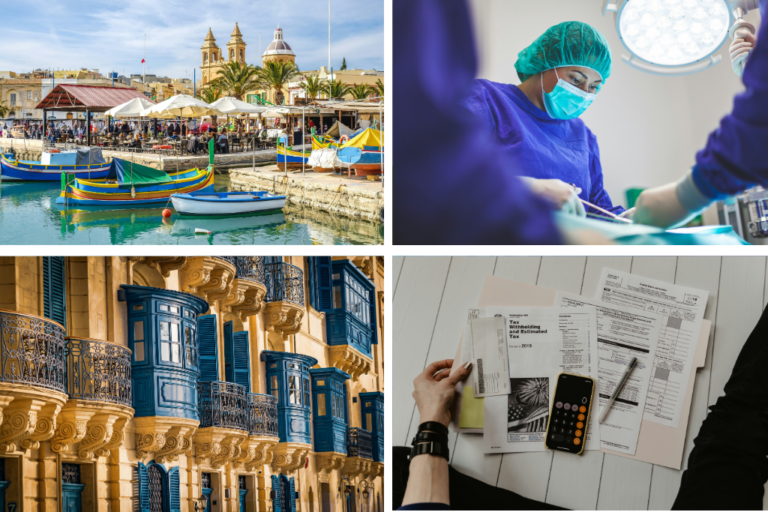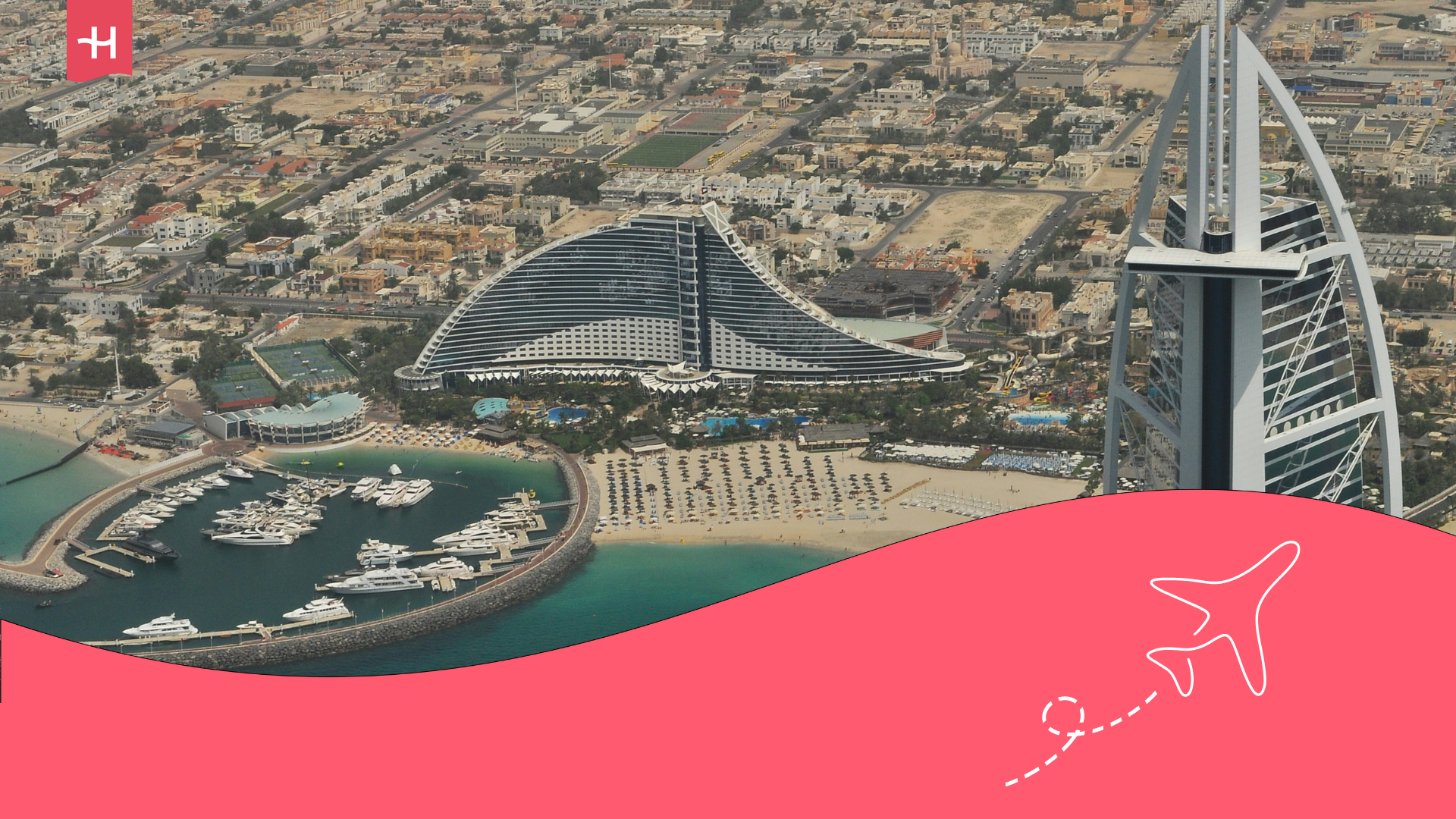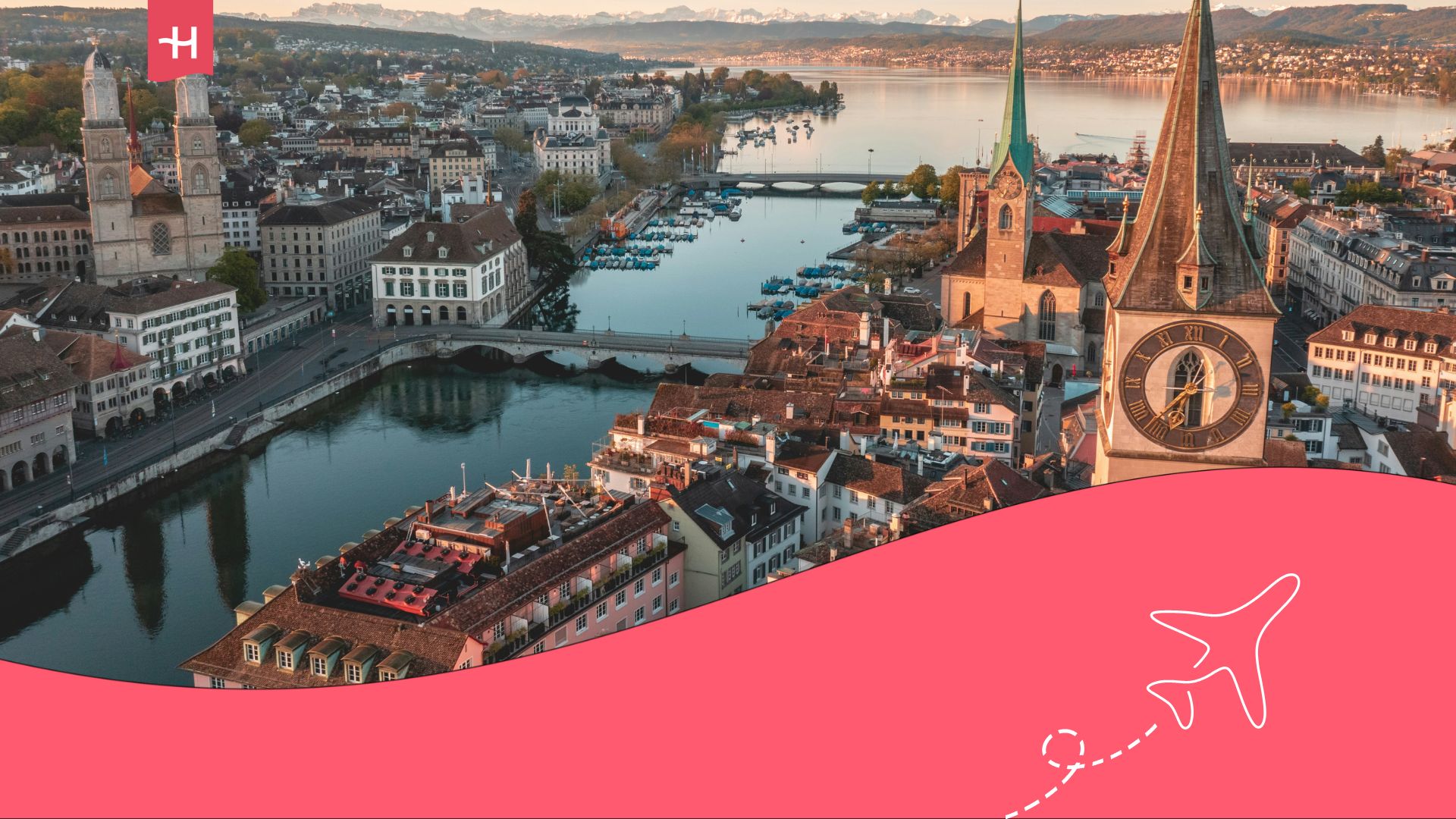Work in Malta: Requirements and opportunities
Discover how to work in Malta in 2025: key requirements, sectors with the most opportunities, and everything you need to know.
Surrounded by deep-blue seas, historic streets, and sunshine that makes you smile year-round, Malta wins people over not just with its beauty but also with the career opportunities it offers to anyone seeking a fresh start. Choosing to work in Malta means being part of a steadily growing economy that blends traditional industries like tourism and English-language teaching with thriving modern sectors such as technology, finance, and online gaming.
Working in Malta is more than just having a job, it is about embracing a relaxed pace of life, meeting people from all over the world, and soaking up the island’s unique charm. Before you make the move, be sure to get familiar with the requirements and opportunities so your arrival feels as warm and welcoming as the Maltese sun.
What are the advantages of working in Malta?
Working in Malta comes with many advantages that make it an appealing destination for professionals, digital nomads, and adventurers who want to balance career growth with a high quality of life. Here you will find everything you need to prepare properly and make the most of the opportunities Malta has to offer.
- Quality of life: Its small size makes it easy to live close to the sea, keep travel distances short, and enjoy your free time to the fullest. On top of that, Malta is a safe place with a vibrant and welcoming expat community.
- Climate and lifestyle: Malta enjoys over 300 days of sunshine each year, making outdoor living and a laid-back lifestyle the norm. The result is less stress and plenty of ways to unwind once the workday is over.
- Competitive salaries: Malta offers a wide range of salaries depending on the sector. Highly specialized roles in areas like technology, finance, or healthcare can reach higher pay levels, with some positions exceeding $65,000.
- International environment: Malta attracts people from all over the world. Working here gives you the chance to connect with diverse cultures, broaden your horizons, and grow your professional network.
- Opportunities in key sectors: Malta has seen growth in sectors like gaming, finance, technology, tourism, and English teaching, creating strong demand for international talent.
- Tax benefits: Malta’s tax system is appealing for both businesses and skilled professionals, which can result in higher take-home pay.

Requirements for working in Malta
Working in Malta can be an unforgettable experience, but it’s essential to know the rules for working legally and safely. Doing so will make it easier to enter the local job market and adapt quickly to life on the island.
- Work permit and visa: If you are from outside the EU or the EEA, you will need a work visa along with a Single Permit, which serves as both your residence and work authorization.
- Employment contract: You must have a job offer or contract before applying for the permit. This document should clearly outline the terms and conditions of your employment.
- Proof of qualifications or experience: Depending on the position, you may be asked to provide degrees, certificates, or verifiable work experience, all translated into English.
- Passport and resume in specific format: It is important to have a passport with at least 8 months of validity from the date of application and a signed Europass CV.
7 tips for starting work in Malta
This small Mediterranean country offers a pleasant climate, growing career opportunities, and a unique multicultural environment. To make the most of your work experience, it helps to know some key tips that can ease your adaptation, speed up your job search, and prevent administrative or financial issues.
- Prepare your English before arriving: Although Maltese is an official language, English is the main language used in almost every sector. Having an upper-intermediate level will open many doors, especially in tourism, gaming, and finance.
- Work permit process: If you are not an EU citizen, your employer must start the Single Permit application. You cannot apply on your own without a contract. The process can take anywhere from six to twelve weeks.
- Consider sharing accommodation: Renting a one-bedroom apartment can cost over $800 a month. Many newcomers choose to share a flat to cut costs.
- Health insurance: Although Malta has a public healthcare system, it is recommended and in some cases required for non-EU foreigners to have private health insurance.
- Adapt to the work culture: The overall atmosphere is relaxed, but punctuality, clear communication, and a willingness to work in a multicultural team are highly valued.
- Bring references and translated documentation: It is a good idea to have your degrees, work history, and criminal record available in English so you can easily provide them to employers or Identity Malta.
- Have internet access from day one: Having internet from the moment you arrive in Malta is not just convenient, it is essential for navigating safely and settling in quickly. With a connection, you can locate your accommodation, stay in touch with your employer or contacts, access public transport information, and even look for your first job opportunities if you haven’t found one yet. A practical way to get online immediately is with Holafly’s monthly plans, which let you activate unlimited mobile data as soon as you land, without having to hunt for local stores or deal with complicated contracts.
Types of jobs in Malta for foreigners
Although the market is smaller than in other European countries, it consistently offers opportunities for foreigners with the right skills and attitude. The sectors that hire the most international talent are usually those facing local labor shortages or requiring specific languages and expertise. Below is a table highlighting the main sectors, job roles, and key details.
| Sector | Common jobs | Characteristics |
| Tourism and hospitality | Waiter/waitress, cook, kitchen assistant, receptionist, tour guide | High demand during peak season, requires English and sometimes another language, salaries of $940–1,400 |
| Online gaming and betting | Multilingual customer service, moderator, digital marketing, data analyst, compliance officer | Languages valued (Spanish, Italian, German), medium-high salaries, international environment |
| Technology (IT) | Programmer, software engineer, DevOps, cybersecurity specialist | Requires technical training and experience, salaries of $2,300+ |
| Finance and insurance | Accountant, auditor, financial analyst, insurance advisor | Finance training, valued certifications, fluent English, competitive salaries |
| Construction and trades | Bricklayer, carpenter, electrician, plumber, maintenance technician | High demand for labor, physical work, does not always require high English proficiency |
| Healthcare and nursing | Nurse, caregiver, laboratory technician | Requires accredited qualifications, advanced English, salaries from $1,750+ |
The jobs in highest demand in Malta for foreigners
Malta’s economy is driven by sectors like tourism, technology, and finance, creating a steady demand for both skilled and unskilled workers and opening doors for many foreigners. Knowing which jobs are most in demand can help you focus your search and boost your chances of finding work quickly, making the most of the opportunities this small but dynamic country offers. Here are the current most sought-after jobs in the Maltese job market:
- Tourism and hospitality workers: Malta relies heavily on tourism, so there are always openings for waiters, cooks, kitchen assistants, receptionists, tour guides, and cleaning staff in hotels, restaurants, bars, cafés, and tour agencies. Basic to intermediate English is required, previous experience is a plus but not always necessary, and good customer service skills are essential.
- Online gaming and betting staff: The country is a key hub for online gaming and betting companies. They are looking for multilingual customer support agents, content moderators, digital marketing specialists, and compliance officers to work in the corporate offices of international firms. You should be fluent in multiple languages, especially English plus Spanish, Italian, or German, and have strong computer and customer service skills.
- Technology professionals (IT): There is strong demand for web developers, programmers, software engineers, cybersecurity specialists, and network technicians in tech companies, start-ups, and IT departments of large corporations. You need technical training, proven experience, and a good command of English.
- Construction and trade workers: Malta is undergoing significant construction growth and is looking for bricklayers, painters, electricians, plumbers, and maintenance technicians for public and private projects, as well as building and hotel upkeep. Practical skills, prior experience, and basic English are required.
- Healthcare and nursing staff: There is a continuous demand for nurses, elderly caregivers, lab technicians, and physiotherapists to work in hospitals, clinics, and care homes. You need recognized qualifications and certifications, a good level of English, and previous experience.
- Finance and insurance workers: Malta is home to banks and insurance companies seeking accountants, financial analysts, auditors, and insurance advisors to work in banks, consulting firms, and insurance companies. You should have a background in finance, advanced English, and relevant work experience.
Salaries and cost of living in Malta
The average gross salary in Malta is around $2,000 per month, which translates to a net income of about $1,550 monthly. However, salaries vary depending on the sector and experience. For example, some newly arrived foreigners may earn between $35,000 and $44,000 per year, roughly $2,900 to $3,650 gross per month. Residents often mention that while $35,000 a year is enough to get by, it does not allow for savings or a comfortable lifestyle without sharing accommodation. For a more comfortable life, including dining out, quality food, and some financial buffer, many estimate that around $44,000 per year is needed.
Monthly expenses for a single person range between $1,650 and $2,400, depending on the area and lifestyle. Renting a one-bedroom apartment in central locations like Valletta or Sliema can cost between $880 and $1,650 per month, while in more rural areas it may drop to $770-1,100. Other costs include utilities ($65–165), groceries ($220–440), public transport ($28–45), and internet and mobile ($27–55). In short, living alone in Malta requires a moderately high income to cover all expenses without financial strain.
Important: If you are a frequent traveler and want to stay connected without worrying about expensive roaming or looking for a new SIM at every destination, Holafly’s subscription plans are for you. With a single eSIM, enjoy internet in more than 170 countries for a fixed price and no surprises on your bill. Travel without limits and connect easily and securely! 🚀🌍

Where can you find job opportunities in Malta?
- Job portals and search engines: Like Keep Me Posted, one of the most popular and effective job portals. It allows you to apply directly without creating an account and lets you receive email alerts.
- Jobsinmalta.com: A widely used platform featuring job openings across multiple industries, including gaming, technology, real estate, and even the airport.
- Official channels and public resources: Jobs Plus is Malta’s public employment service. Registering gives you access to updated job listings, professional guidance, and training workshops or programs. You can create a profile, upload your CV, and get notifications about new openings.
- EURES European employment portal that includes opportunities both in Malta and in other European Union countries.
- Professional networks and media: LinkedIn, while not widely used in Malta for posting jobs, is still a key platform where many companies review professional profiles. It’s great for networking and showcasing your experience. Facebook also hosts numerous active groups where companies post jobs, especially temporary or seasonal positions.
- Private employment agencies: These agencies assist foreign candidates looking for jobs in sectors like finance, technology, or gaming. They provide support with CVs, interview preparation, and overall guidance.
Frequently asked questions about working in Malta
Yes, if you are a citizen from outside the European Union, you will need a work permit and a national visa. EU/EEA citizens can work without a visa but must register if their stay exceeds three months.
In central areas like Sliema or Valletta, a one-bedroom apartment rents for $880 to $1,650 per month. In less touristy areas, prices start around $770.
Yes, foreign students can work up to 20 hours per week, but they need a permit and a formal contract.
Income tax varies between 0% and 35%, depending on annual salary. They also deduct social security contributions.





 Language
Language 


















 No results found
No results found








